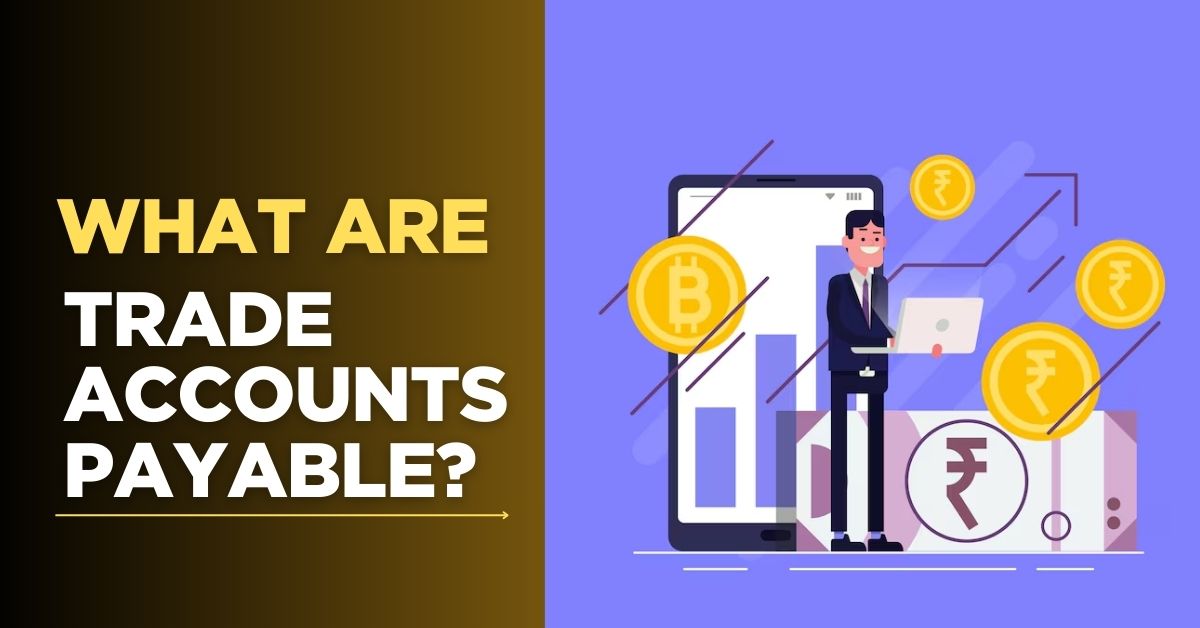What Are Trade Accounts Payable?
When it comes to running a small business, there are quite a few tasks that are a must to do, the financial part being one of them. Trade accounts payable are one of those things that fall through the cracks a lot—this is the area of your business’s immediate post-purchase obligations that can change the cash flow or the supplier relationships for the good or worse.
This guide will help you understand what trade accounts payable are, how they work, why they can be beneficial to your business, and why it is important to stay on top of them.
What are trade accounts payable?
Trade payable or trade accounts payable is the money your company owes to its suppliers when purchasing goods and services on credit. This means you’ve received the product or service, but payment is scheduled for a later date which is usually within 30, 60, or 90 days.
For instance, let’s say that you are the owner of a boutique, and you purchase inventory from a supplier who gives you the period of 30 days to do the payment, that owing amount represents a trade payable.
Why trade payables matter for small businesses
Cash flow management
By using trade credit, small businesses can sustain the healthy flow of cash all through while they keep their business operations going. This is to say that instead of paying out money upfront, you can save the payment time to sell or get a financial return and then you can settle the bill.
Vendor relationships
The timely payments that you make (even those that you pay before the scheduled time) bode well for the supplier, who then tends to become more loyal and give better terms.
Accurate financial reporting
Your liabilities shows in the balance sheet as trade payables. The correct tracking of such payables makes your financial statements trustworthy and ensures that the investor can use them for decision-making or when you need to get a bank loan.
Components of trade accounts payable
To manage trade payables effectively, you need to understand the key components:
Invoices
Invoices are the documents through which a consumer can find out the relevant items purchased, their quantities, prices as well as the payment terms.
Payment Terms
Payment Terms Wordings like “Net 30,” “Net 60,” or “2/10 Net 30” (where a discount is offered for early payment) are known examples. Understand who your suppliers are and what they require from you.
Aging Schedule
It is an accounting report that breaks down your accounts by the due date to help you stay away from late payments and notice trends.
Purchase Orders and Receipts
Buyer is protected against losses arising from fraud/false invoices by issuing Purchase Orders and collecting incoming goods by way of Receipts.
Best practices for managing trade accounts payable
Develop internal workflows to handle the input, confirmation, and disbursement of invoices..
Using technology, it is now possible to schedule reminders, identify delayed payments, and outline a record without the need to manually prepare reports. Thus, the risk of making mistakes is reduced, and less time will be spent.
Before paying the supplier, compare the invoice with the purchase order and receipt to ensure the details match.
Common mistakes to avoid
- Ignoring invoice due dates
- Losing track of vendor payment terms
- Overpaying or duplicate payments
Failing to record liabilities in your accounting system
Final thoughts
Trade accounts payable may seem like a routine accounting task, but they play a critical role in your business’s day-to-day stability and long-term success. Having clear procedures, utilizing modern tools, and discipline can have positive results when managing payables, which can backstage your efficiency, provide a source of cash for growth and be a source of good supplier relationships that last for a very long time.
If you are totally committed to building a strong financial baseline for your small business, the first step you should take is dealing with the way you approach trade payables. That is the area of intersection between operations and opportunity, and if executed in the right way, it becomes the base that supports everything else that comes after it.
Also Read:
Frequently Asked Questions
Are trade payables the same as accounts payable?
Not exactly. All trade payables are accounts payable, but not all accounts payable are trade related. Trade payables are specifically connected to those product items and services that are used operationally.
What are the consequences of late payment?
There are many disadvantages that you can experience, such as the loss of positive relations with suppliers, or even the issue of deliveries being halted.
Can I negotiate payment terms?
Yes, definitely. When both the business is in its growth phase or the company is a trustworthy stake in the market, many vendors are open to renegotiating the terms of agreement.


